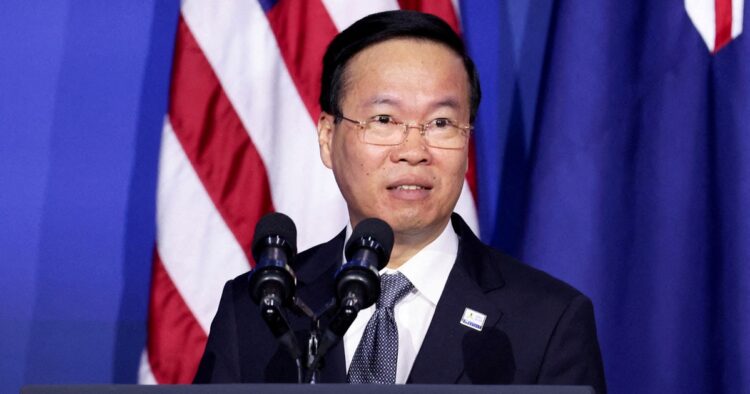In a surprising turn of events, the Vietnamese Communist Party has accepted the resignation of President Vo Van Thuong. The government, in a statement released on Wednesday, cited “shortcomings” as the reason behind this decision. These shortcomings, according to the statement, violated party rules and had a negative impact on public opinion, tarnishing both the Party’s and the State’s reputation as well as his own.
President Vo Van Thuong, although holding a largely ceremonial role, is one of the top four political figures in Vietnam. Being the youngest member of the party’s Politburo, he has significant influence within the country’s top decision-making body. Thuong is closely associated with General Secretary Nguyen Phu Trong, who holds immense power within Vietnam’s political landscape.
The resignation of President Thuong comes amidst a broader crackdown on corruption initiated by General Secretary Trong, dubbed the “blazing furnace” campaign. Under this initiative, hundreds of officials, including former President Nguyen Xuan Phuc and two deputy prime ministers, have been investigated and compelled to step down from their positions.
Despite the largely ceremonial nature of the presidency, the nomination of President Thuong requires approval from the rubber-stamp National Assembly. This nomination, endorsed by the party’s Central Committee, aligns with an earlier decision made by the Politburo. The National Assembly is set to convene for an extraordinary session on Thursday, with a formal sitting scheduled for May.
The position of the president in Vietnam, although largely symbolic, holds significant political weight, as it is one of the top four positions within the country’s leadership structure. Alongside the general secretary of the party, the prime minister, and the head of the national assembly, the president plays a crucial role in shaping Vietnam’s political landscape and representing the nation on the global stage.
The acceptance of President Vo Van Thuong’s resignation marks a notable development in Vietnam’s political sphere. The reasons behind his departure, as cited by the government, underscore the party’s commitment to upholding integrity and public trust. However, this shake-up could potentially impact foreign investors’ confidence in Vietnam, highlighting the importance of stability and transparency in the country’s governance.

















Comments